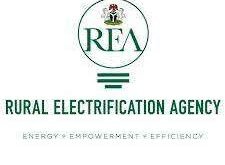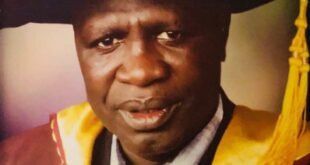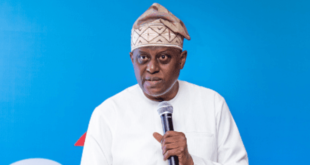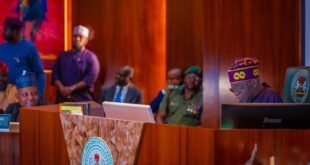Based on the budget, the Borno State government has invested billions of naira to construct boreholes. However, findings by IMRAN RIDWAN shows that people in the state still need water
On a cloudy Saturday afternoon in August 2024, in Dala Daleri community in Jere Local Government area of Borno State, a small child of about nine years old was seen pushing a truck filled with water a long distance. Across the street, an old man was sitting on the floor with an empty gallon.
Abdullah Mala, 75, village head, said that the community had experienced water scarcity for almost five years.
“Our main problem is water scarcity. The only water borehole constructed has been out of commission for more than four years. At one point, the government gave us water in tanks, which only lasted for two months,” he said.
Hadiza Bukar, a woman in her 50s, like many other women interviewed in the community, complained about water scarcity. He pointed out the importance of drinking water and believed that constructing boreholes would help the community overcome the water scarcity prevailing in the area.
“The expensive water we buy from far away is often ‘tasty’; we have to add some local water treatment to it before using it,” he said.

Abdullah Malla, village head in Dala Daleri
Lifesaving fluid
According to the UN International Children’s Emergency Fund, water scarcity limits access to clean water for drinking and maintaining basic hygiene at home, in schools, and in health facilities. When water is scarce, sewage systems fail, and the threat of contracting diseases such as cholera increases. Scarce water also becomes more expensive.
The report shows that unavailability of water in a community has a greater impact on women and children because they often have to travel long distances to collect it. Additionally, carrying water over long distances is a huge physical burden and can expose children to risk and exploitation.
Water project
Based on the budget, the Borno State government has invested billions of naira to construct boreholes in the state. In 2021, N300 million is budgeted; in 2022, N1.2 billion, in 2023, the state government budgeted N3.9 billion for the construction of the borehole project. In addition, they also received a N5.3 billion foreign loan from the African Development Bank (AfDB), for the construction of boreholes and the purchase of water treatment chemicals and industrial equipment.

A little boy about 9 years old in Dala Daleri
Likewise, in 2023, the Borno State government received a grant of N437 million from the United Nations Children’s Fund (UNICEF) for the construction of boreholes and sanitation.
READ ALSO:INVESTIGATION: How Shell is driving climate disinformation in Nigeria’s Niger Delta (Part I)
Despite these funds, when UDEME visited Dala Yajiwa, Dala Daley, Polo and Jiddari communities under Jere LGA in August, there were no new borehole projects, and existing projects had been out of operation for three years.
Reaction
Bulama Muhammad, 50, chairman of the Dala Yajiwa community, expressed his frustration over the unavailability of the water project for three years. He said water scarcity caused a setback in community development.

Bulama Muhammad, head of the Dala Yajiwa community.
“The thing is, there was a time when we tried to dig a well that could at least give us access to water, but the well didn’t produce any water, which we then turned into a rubbish dump. “The issue of water scarcity makes some people leave their communities because no one wants to live in a community where there is no water,” he said.
He added that the water they get from water sellers is not hygienic.
“The water we rely on from water vendors, apart from being expensive, is not always clean and tasty. There was a time when some health officials told us that the borehole water sold by traders was not made and treated properly.”
More frustration
Muhammad Hassan, 42, a resident of Jiddari, said most of the government boreholes in his community were not working.
”As you can see, the borehole tank has been there for more than five years and is not working. In a week, I spend almost N6,000 on water,” he said.
Something similar was said by Bukar Bulama, 43, a Polo community leader, who said that the boreholes made for them by federal lawmakers and ‘NGOs’ were not working.
“You see, when the borehole is damaged, people donate money to repair it because that is the only way for them to survive. “But now because of difficulties, people have difficulty eating, let alone repairing drill holes,” he said.
He added that they need the government to help them find solutions to water scarcity in their communities.
Apart from that, Hawau Giwa, 60 years old, a resident of Polo, said that “we don’t ask much from the government to maintain a good living environment.

One of the malfunctioning boreholes in Polo
“One thing I know, so that the government gets credit for the work it does, is to provide social facilities for the community. “All we are looking for now is drinking water that they can drink, let them make boreholes for them,” he said.
“How long will I continue buying water from water sellers? “This country is very difficult, everything is expensive,” he added.
Salisu Ibrahim, a 30-year-old resident of Dala Daleri, expressed frustration at the distance they had to travel before buying water. “The problem is, before you get water, you have to move far away. “Having water in this community will make everything thrive, at least our children and workers will bathe on time for their daily activities,” he said.
Meanwhile, Aminat Idris, 40, a resident of Polo, said “we always have fun during the rainy season. The problem of water scarcity will be reduced because we will have enough water for drinking and household needs. Water sellers will even lower the price.”

Abandoned water tank at Jiddari
Lawmakers, institutions react
This reporter contacted Hon. Ahmed Satomi, a federal lawmaker representing Jere Constituency (which includes the communities visited) in Maiduguri, spoke on the phone about the frustrations faced by his constituents.
He explained that he was a member of the National Assembly, and his main task was to create laws and policies; construction of boreholes is the main task of state and local governments.
“The thing is, I only got intervention to build a water project from the ministry or used my money for its construction, but right now my hands are tied because I don’t have the funds to build a borehole.”
He further added that he would follow up on the matter and ensure “the necessary ministries are aware of it”.
Muhammad Isah, an official of the Borno State Rural Water Supply and Sanitation Agency (RUWASSA), said, “It is their duty here to build and repair boreholes in any community.”
“Currently, our teams are working on the construction of several borehole projects, and I am sure the communities you mentioned will be part of those projects.”
This reporter also contacted Hon. Hajiya Inna Galadima, Chair of Jere Regional Government, by telephone. He doesn’t answer calls or reply to messages.
This story was supported by funding from the Center for Journalism Innovation and Development (CJID)
The post INVESTIGATION: With billions of dollars spent on borehole projects, Borno communities still suffer from water scarcity appeared first on Latest Nigeria News | Top News from Ripples Nigeria.
 JamzNG Latest News, Gist, Entertainment in Nigeria
JamzNG Latest News, Gist, Entertainment in Nigeria









